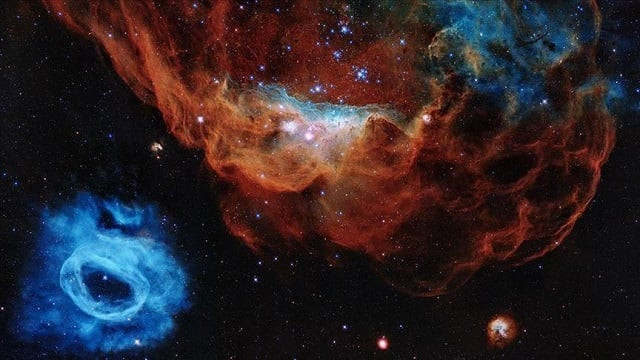Hubble telescope celebrates 30th year in space
US space agency NASA said the galaxy in the image located 163,000 light-years away from Earth

PHOTO: AA
In a statement, US space agency NASA said the galaxy in the image located 163,000 light-years away from Earth and included the giant red nebula NGC 2014, as well as its smaller blue neighbor NGC 2020.
Fear and loathing in lockdown
The nebulae are part of a vast star-forming region in the Large Magellanic Cloud, NASA said of the image, which was dubbed the "Cosmic Reef" by astronomers due to its resemblance of an undersea world.
"Hubble has yielded to date 1.4 million observations and provided data that astronomers around the world have used to write more than 17,000 peer-reviewed scientific publications, making it the most prolific space observatory in history.
US govt study suggests heat, sunlight, and humidity weaken Covid-19
Its archival data alone will fuel future astronomy research for generations to come," said the statement.
The Hubble Telescope developed jointly by NASA, the European Space Agency, and the Space Telescope Science Institute has been making space observations in world orbit since 1990.


















COMMENTS
Comments are moderated and generally will be posted if they are on-topic and not abusive.
For more information, please see our Comments FAQ